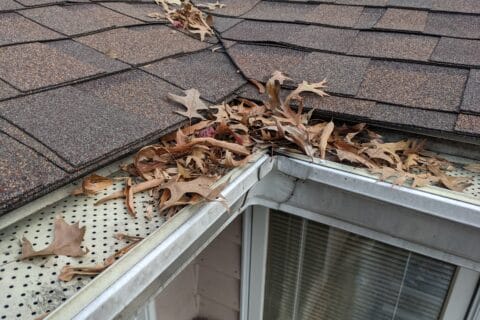Should You Repair or Replace Your Windows? A Complete Guide
 Revised by Bruce Hulse
Revised by Bruce Hulse
Deciding whether to repair or replace your windows is a significant decision faced by many homeowners. This choice directly impacts your home’s comfort, energy efficiency, property value, and even environmental footprint. While timely repairs can often extend the lifespan of existing windows, there are circumstances where full window replacement is the most practical and beneficial solution. In this comprehensive guide, we’ll explore key factors influencing your decision, offering detailed insights tailored specifically to homeowners navigating this crucial home improvement choice.
Recognizing the Signs of Window Damage
Before determining if windows should be repaired or replaced, it’s essential to accurately identify signs of wear, damage, and inefficiency. Recognizing these symptoms early can save you money and prevent further issues.
Common Issues That Can Usually Be Repaired
Certain window problems are minor and cost-effectively addressed through repairs rather than full replacements.
-
Jammed or Difficult-to-Operate Sashes:
If your window sashes become hard to open or close, the issue is typically due to paint accumulation, dirt buildup, or slight misalignment. Professional repairs, including cleaning, lubrication, or minor adjustments, can easily restore smooth functionality without significant expense. -
Minor Rot or Decay in Wooden Frames:
Localized areas of rot or wood decay don’t necessarily indicate the need for window replacement. Often, professionals can use epoxy fillers or wood consolidants to repair and stabilize small damaged sections, preventing further deterioration and extending your window’s lifespan. -
Drafts and Minor Air Leaks:
Air leaks around windows significantly impact energy efficiency. However, minor drafts can often be resolved effectively and affordably through weather stripping and caulking. These simple fixes improve comfort and lower energy bills without the cost of replacing entire window units. -
Condensation Between Double-Paned Windows:
Fogging or condensation between window panes usually indicates seal failure. If your windows are still under warranty, manufacturers may replace the affected sash rather than the entire window, providing a cost-effective fix. Alternatively, professionals may offer defogging services to address the moisture buildup without full replacement.
When Replacement Is the Better Option
In certain scenarios, repairs may only serve as temporary fixes, making replacement the more beneficial long-term solution.
-
Severe Frame Damage and Extensive Rot:
If window frames exhibit widespread rot or extensive mold, repairs are rarely sufficient or cost-effective. Severely compromised frames weaken your home’s structural integrity and significantly impact insulation and energy efficiency, making replacement necessary. -
Broken Glass or Outdated Single-Pane Windows:
Older single-pane windows offer poor insulation, contributing to high heating and cooling costs, particularly in Ontario’s variable climate. Replacing single-pane windows with double- or triple-pane, energy-efficient models drastically enhances thermal performance and reduces energy bills. -
Persistent Drafts and Excessive Energy Costs:
If you repeatedly encounter drafts and have tried sealing windows multiple times without improvement, it’s likely time to consider replacing them. New energy-efficient windows provide airtight seals, greatly improving comfort and reducing long-term energy expenses.
Energy Efficiency Considerations: Repair vs. Replace
Energy efficiency remains a top consideration when deciding to repair or replace windows. Making the right choice helps manage utility costs, improve indoor comfort, and support environmental sustainability.
Assessing Cost versus Long-Term Savings
While new energy-efficient windows typically reduce heating and cooling expenses, the return on investment (ROI) depends significantly on your home’s location, current energy usage, and chosen window quality. On average, Ontario homeowners recover the costs of window replacement over approximately 10 to 20 years through reduced energy bills, improved comfort, and enhanced property value.
However, if your existing windows are relatively modern and only moderately inefficient, investing in repairs and modest upgrades may offer greater immediate financial sense.
Improving Efficiency Without Full Replacement
If your windows remain structurally sound but are not performing optimally, several practical upgrades can improve insulation and energy efficiency without full replacement:
-
Weather Stripping and Caulking: Sealing minor gaps around window frames is an inexpensive yet effective way to reduce drafts and heat loss significantly.
-
Insulated Curtains and Window Films: Using thermal curtains or installing insulating films provides additional insulation, maintaining comfortable indoor temperatures year-round.
-
Storm Windows: Installing storm windows can offer extra insulation and weather protection, significantly enhancing the efficiency of older windows without requiring a full replacement.
Deciding When Repair is More Cost-Effective
In many situations, repairs represent the most practical choice. Repairs typically make sense if your windows:
-
Have minor issues and remain structurally sound.
-
Are relatively new or still under warranty.
-
Possess historical value or architectural integrity worth preserving.
For example, homeowners with heritage homes may prefer repairing original wooden windows to preserve historical authenticity, maintaining property value while improving performance through targeted upgrades like weather stripping or adding storm windows.
Deciding When to Invest in Window Replacement
On the other hand, window replacement is often the most effective solution under specific conditions:
-
Older Windows Over 20 Years Old:
Older windows typically have outdated insulation technologies and deteriorating seals, making replacement an economically sensible investment that quickly improves energy efficiency, comfort, and appearance. -
Frequent or Severe Problems:
Persistent operational issues, consistent leaks, rot, mold, and high energy costs indicate your current windows no longer provide adequate performance. Replacement windows offer long-term reliability and significantly reduce maintenance needs. -
Enhancing Home Comfort and Property Value:
New windows dramatically improve indoor comfort by reducing drafts and noise while boosting curb appeal. This upgrade increases home value and marketability, particularly beneficial for homeowners planning to sell or renovate.
Considering Environmental Impact: Repair vs. Replacement
Sustainability is increasingly important for homeowners deciding between repairing and replacing windows. Both options have environmental pros and cons worth considering:
Eco-Friendly Window Repair Approaches
Window repairs generally represent a more sustainable approach, minimizing waste and resource use. Eco-friendly practices include:
-
Choosing Low-VOC Materials: Opt for low-VOC caulks, sealants, and paints when repairing windows to reduce harmful emissions and improve indoor air quality.
-
Repair Over Replacement: Repairing existing window units significantly reduces landfill waste and conserves natural resources used in manufacturing new windows.
-
Using Storm Windows: Adding storm windows enhances insulation without discarding functional older windows, significantly reducing environmental impact.
Sustainable Window Replacement Options
When replacement becomes necessary, choosing environmentally conscious options helps reduce long-term environmental footprints:
-
Energy Star-Certified Windows: Choosing Energy Star-rated windows ensures reduced energy consumption and environmental impact over time.
-
Recyclable Materials: Opt for replacement windows made from aluminum or fiberglass, materials known for recyclability and durability.
-
Locally Manufactured Windows: Selecting windows from local suppliers minimizes transportation-related emissions, supporting regional economies while reducing environmental impact.
Making the Final Decision: Repair or Replace?
When weighing your window repair versus replacement options, carefully consider these critical factors:
-
Extent of Damage:
Minor issues typically justify repairs, whereas significant or widespread damage often demands replacement. -
Energy Efficiency Goals:
Consider your long-term energy efficiency objectives. If existing windows significantly contribute to high energy costs, replacement windows become more financially sensible. -
Budget and Long-Term Savings:
Compare short-term repair costs against potential long-term savings and increased home value from energy-efficient replacements. -
Home Aesthetics and Market Value:
Ensure your decision aligns with your home’s architectural style and positively impacts its resale potential.
When to Consult a Professional Window Expert
If you remain uncertain about repairing or replacing your windows, consulting a window specialist provides clarity and professional insight. Experts offer services such as:
-
Comprehensive inspection and damage assessments.
-
Defogging double-pane windows or replacing glass units.
-
Applying caulking, weather stripping, and insulation upgrades.
-
Professional window installation tailored to your home’s requirements.
Professional consultation ensures informed decision-making and long-lasting solutions tailored specifically to your home’s needs.
Conclusion: Making an Informed Choice
Choosing between window repair and replacement involves carefully evaluating several key factors: the severity of window damage, potential energy efficiency improvements, financial considerations, and your home’s overall aesthetics and market value. While repairs effectively address minor issues and maintain historical authenticity, replacement often delivers substantial long-term benefits in energy savings, comfort, security, and property value.
By assessing your situation thoroughly and seeking professional advice when necessary, you can confidently decide whether to repair or replace your windows—ensuring enhanced comfort, efficiency, and satisfaction with your home for years to come.


